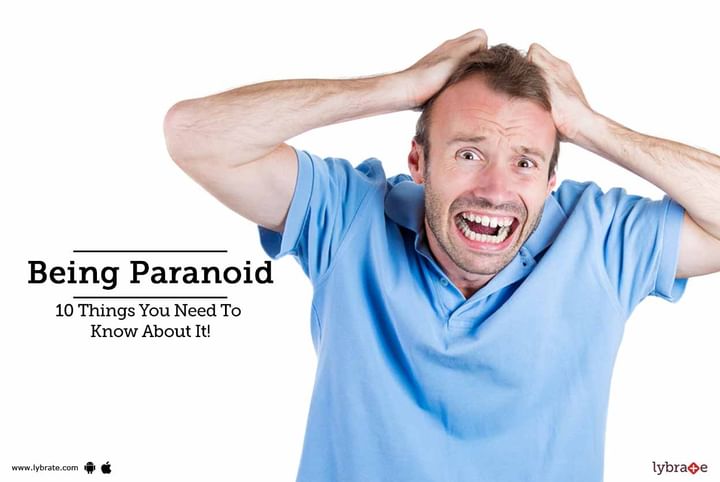Get the App
For Doctors
Login/Sign-up
Last Updated: Aug 23, 2023
BookMark
Report
Being Paranoid - 10 Things You Need To Know About It!
Dr. Kushal JainPsychiatrist • 22 Years Exp.MBBS Bachelor of Medicine and Bachelor of Surgery, MD - Psychiatry, Master of Public Health (MPH) Sweden
Paranoia is a psychological condition that worries you, makes you nervous and afraid of your surroundings and your friends and relatives. Paranoia extends a vast field and here are 10 things you need to know to tackle and overcome paranoia.
- Be optimistic: Paranoia branches out of pessimism. When you tend to assume the worst of every situation, you will naturally become nervous and afraid of everything that befalls you. Be optimistic and face the situation head-on, reminding yourself that it is not as bad as it may seem and you have the power to overcome it.
- Do not obsess over every minute thing: Paranoia does not only mean that someone out there is after you, it also means the constant worry or feeling that someone will get you. The more you think about the negative things the more you will drown yourself in paranoia. But it is not impossible to overcome them. So keep a journal where you write down all the paranoid thoughts and check them later to see how baseless they were.
- Confide your thoughts to a confidante or a close friend: Keep a close friend whom you can trust and confide in him/her every detail of your thoughts. Listen to what feedback they have to offer and try to believe them.
- Keep yourself busy: Focus all your energy on some hobby or tasks that will keep your paranoid thoughts at bay. It can be anything, from playing an instrument to a healthy time at the gym.
- Ask yourself: Ask yourself whether anyone else cares about what you are caring right now. Everyone is busy with their life like you are and everyone has their own troubles to attend to.
- Find the root cause: It is essential for you to find out whether your paranoia is rooted in anxiety or not. Anxiety triggers paranoid thoughts; however, the two conditions are different and should be treated separately. Anxiety is your belief that you will die suddenly of a fatal disease, whereas paranoia will make you believe that your doctor is purposefully killing you.
- Paranoia comes in waves: The attack comes suddenly and with great vigor. You may just be enjoying a party and suddenly you are affected by a bout of paranoia.
- Plan ahead of the attack: If you are living alone, keep emergency contacts near you and the moment you feel any different, call your emergency contact.
- Medicate your paranoia: Antipsychotic medications such as Haldol and Loxapine work well to minimize the delusions and the hallucinations. However, never consume any medicine without the advice of the doctor.
- Seek professional help: A psychologist will be able to diagnose you better and give the necessary advice to contain your paranoia.



+1.svg)
